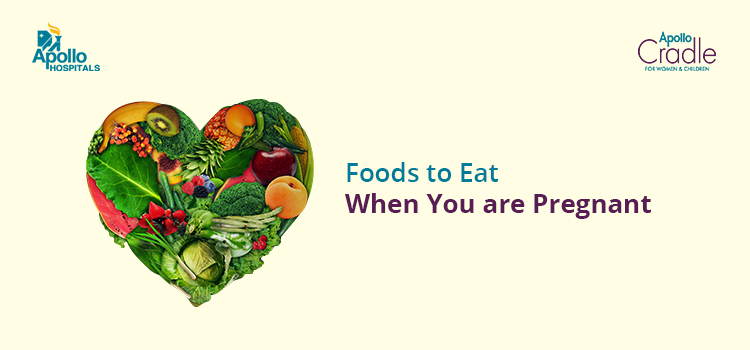‘You’re eating for two’ is a statement that every pregnant woman has heard, but that has long since been proven to be a myth. However, it is definitely true that what you eat during your pregnancy affects your baby, not just while It is in the sanctuary of your womb, but also in the years to come. While there is no such special diet that a pregnant woman must go on, it is important to eat an additional amount of certain foods and avoid eating other foods completely because of their high content of nutrients or lack of them respectively. Foods that a woman must completely avoid during pregnancy include caffeine, uncooked or processed meat, alcohol and fish that has a high percentage of mercury.
If you’re an expecting mother, here are 6 foods that you must definitely include in your diet:
Dairy Products-
Dairy products have a high concentration of protein and calcium that is required by the fetus to grow. Dairy products such as milk, curd, cheese and butter also contain high amounts of Vitamin B, zinc, phosphorous and magnesium that are beneficial for both you and your baby. Greek yogurt or even plain yogurt is particularly beneficial for pregnant woman as it has a high rate of calcium and probiotic bacteria that promotes digestion. Women that are lactose intolerant can have probiotic supplements instead. Consuming dairy products daily during your pregnancy will reduce your chances of falling prey to gestational diabetes, vaginal infections or allergies.
Legumes-
Legumes, a food category that includes beans, lentils, peas, soybeans, chickpeas and peanuts, are a good source of fiber, calcium, protein, iron and Vitamin B. Since these are vegetarian and easily affordable, they are universally recommended by doctors for all pregnant women, especially during the first trimester. Some varieties of legumes are especially high in potassium and magnesium – One cup of lentils, chickpeas or black beans can provide 65 to 90% of the Recommended Dietary Allowance (RDA).
Avocados-
These fruits contain a high amount of monounsaturated fats, which are very beneficial in building the skin and brain tissues of the fetus. Avocados have higher potassium levels than bananas, and help in relieving leg cramps that are a common side effect of pregnancy.
Dried fruits-
Dried fruits like prunes, apricots and dates contain the same amounts of potassium, protein and fiber as fruits but with much lower water percentages. While they are full of nutrition, they are also high in calories, and hence should be consumed only in small quantities at a time.
Whole grains–
Whole grains, especially quinoa and oats, are highly recommended for women in their second and third trimesters. These foods are packed with fiber, vitamins and plant compounds, and are definitely higher in nutrition as compared to refined grains.
Fish Liver Oil–
This supplement comes in the form of capsules and is highly recommended for pregnant women as it boosts overall health and wellness of both the mother and the child. Fish liver oil also helps build your child’s immunity.
Green and Leafy Vegetables-
Vegetables like broccoli and spinach contain high levels of fiber, Vitamins C, K and A, calcium, iron, folate and potassium. These reduce the risk of low birth weight of your child, thus preventing a whole host of related problems.
In addition to the above foods, it is important to drink enough water to keep yourself hydrated at all times. It may help to keep sipping on water every 10 minutes or keep a water bottle handy. While staying hydrated is important for all of us, it’s especially so for soon-to-be mothers as the volume of blood increases by almost 50% during pregnancy.



